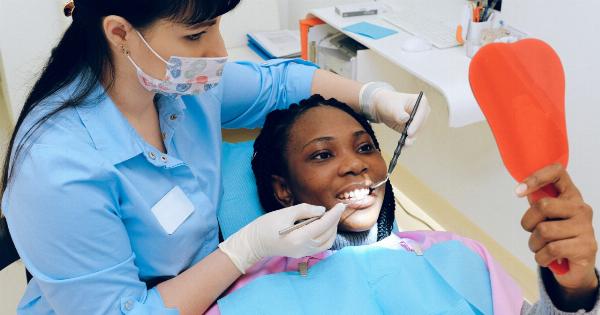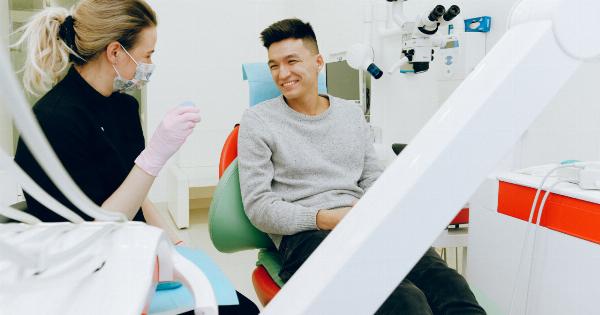Psoriasis is a chronic autoimmune disease that primarily affects the skin. It is characterized by raised, red, and scaly patches on the skin’s surface, often accompanied by itching and discomfort.
Psoriasis can range from mild to severe and can significantly impact a person’s quality of life. While there is no cure for psoriasis, recent breakthroughs in treatment options have provided hope for individuals with moderate to severe psoriasis.
Understanding Psoriasis
In order to understand the breakthrough treatment options available, it is essential to have a basic understanding of psoriasis.
Psoriasis occurs when the body’s immune system mistakenly attacks healthy skin cells, resulting in their rapid accumulation on the surface. This excessive buildup leads to the formation of plaques, which are thickened, inflamed patches.
Traditional Treatment Approaches
For many years, the mainstay of psoriasis treatment has been topical medications, such as corticosteroids, coal tar, and salicylic acid. These medications work by reducing inflammation and slowing down cell turnover.
While these treatments can provide relief for mild cases, they are often insufficient for individuals with moderate to severe psoriasis.
In more severe cases, phototherapy (exposure to ultraviolet light) or systemic medications may be prescribed. Phototherapy involves the use of ultraviolet B (UVB) or psoralen plus ultraviolet A (PUVA) light.
Systemic medications, on the other hand, are taken orally or by injection and work throughout the entire body to suppress the immune system response that triggers psoriasis.
Biologic Therapies: A Game-Changer
In recent years, biologic therapies have revolutionized the treatment of moderate to severe psoriasis. Biologics are a class of medications derived from living cells and target specific parts of the immune system.
They work by inhibiting proteins or cells that play a role in causing inflammation and excessive cell growth.
Secukinumab: A New Hope
One breakthrough biologic therapy that has shown remarkable success in treating moderate to severe psoriasis is secukinumab.
Secukinumab is a monoclonal antibody that specifically targets interleukin-17A (IL-17A), a protein involved in the inflammation process associated with psoriasis.
Clinical trials have demonstrated that secukinumab can provide rapid and significant improvement in psoriasis symptoms.
In one study, over 80% of patients receiving secukinumab achieved a 75% reduction in their psoriasis severity scores after just 12 weeks of treatment.
Secukinumab is administered via subcutaneous injection and typically requires an initial loading dose followed by regular maintenance doses. Most patients experience sustainable results with minimal side effects.
Risankizumab: Another Breakthrough
Risankizumab is another biologic therapy that has shown promising results in the treatment of moderate to severe psoriasis.
This medication targets interleukin-23 (IL-23), a protein that plays a crucial role in the development and progression of psoriasis.
Clinical trials evaluating the efficacy of risankizumab have revealed high rates of skin clearance.
In a study involving patients with moderate to severe psoriasis, approximately 8 out of 10 patients achieved clear or minimal disease (Psoriasis Area and Severity Index score of 0 or 1) after one year of treatment with risankizumab.
Risankizumab is also administered via subcutaneous injection and has demonstrated a favorable safety profile in clinical trials, with minimal adverse events reported.
IL-23 and IL-17 Inhibition Combined
Recognizing the distinct biological pathways involved in psoriasis, researchers have explored the combination therapy of IL-23 and IL-17 inhibition for even more substantial treatment outcomes.
Recent studies have suggested that simultaneously blocking both IL-23 and IL-17 pathways leads to higher rates of skin clearance and longer-lasting remission.
This combination approach has shown particularly promising results in patients with moderate to severe psoriasis who have not responded adequately to other treatments.
Other Emerging Treatments
Beyond biologic therapies, there are several other emerging treatments that offer hope for individuals with moderate to severe psoriasis.
JAK Inhibitors: Janus kinase (JAK) inhibitors are a new class of oral medications that work by blocking certain enzymes involved in the immune response.
Several JAK inhibitors have shown efficacy in reducing psoriasis severity, although they may carry a higher risk of side effects compared to biologic therapies.
Guselkumab and Tildrakizumab: These are two additional biologic therapies that target IL-23, similar to risankizumab.
Both have shown positive results in clinical trials, with a significant number of patients achieving clear or almost clear skin after treatment.
Lifestyle Management
While breakthrough treatments offer hope for individuals with moderate to severe psoriasis, it is important to complement medical interventions with lifestyle management strategies.
Effective self-care measures include maintaining a healthy diet, managing stress levels, avoiding triggers such as excessive alcohol consumption or smoking, and practicing regular exercise.
Additionally, keeping the skin moisturized and protected, minimizing skin trauma, and using gentle skincare products can help manage psoriasis symptoms.
Conclusion
The advancement in treatment options for individuals with moderate to severe psoriasis has been remarkable in recent years.
Biologic therapies, such as secukinumab and risankizumab, have provided significant relief and improved quality of life for many patients. Combination therapies targeting both IL-23 and IL-17 pathways have shown additional promise.
As research continues to progress, more breakthrough treatments are expected to emerge, providing further options for individuals living with psoriasis.
By combining medical interventions with holistic lifestyle management strategies, individuals with psoriasis can take control of their condition and achieve better long-term outcomes.





























